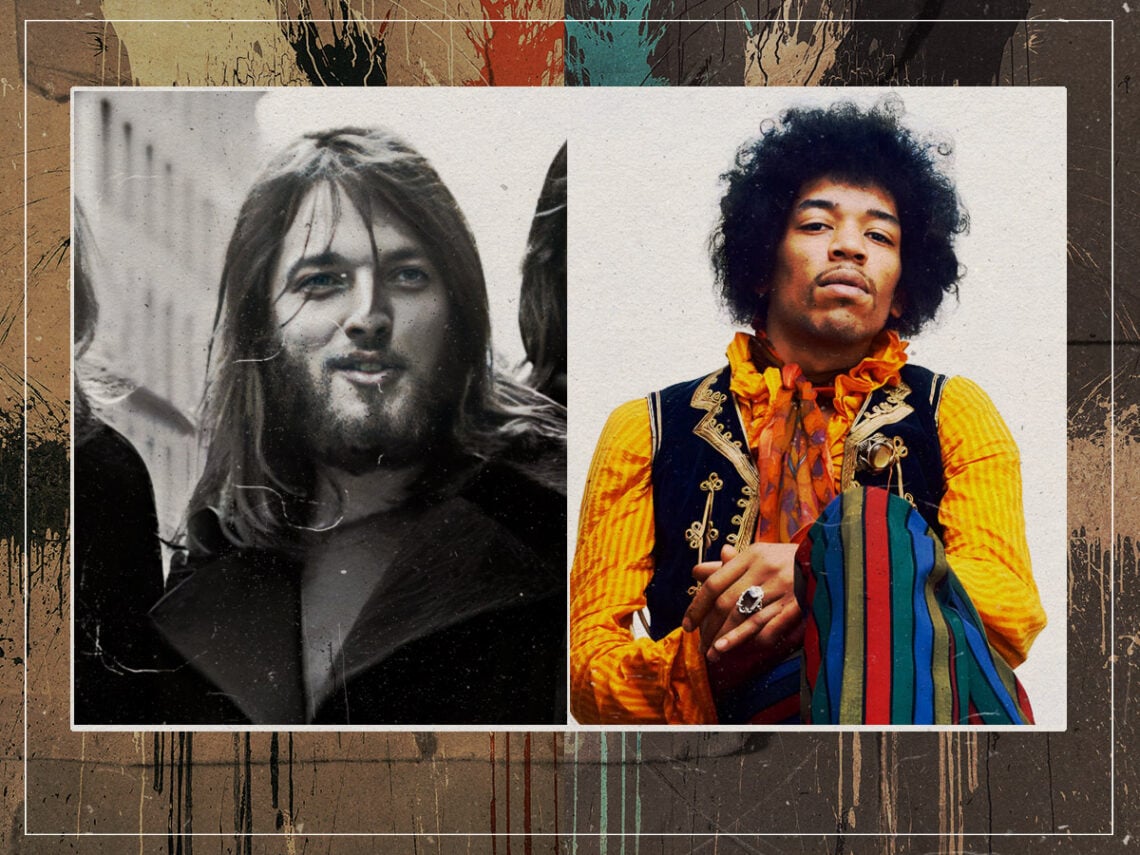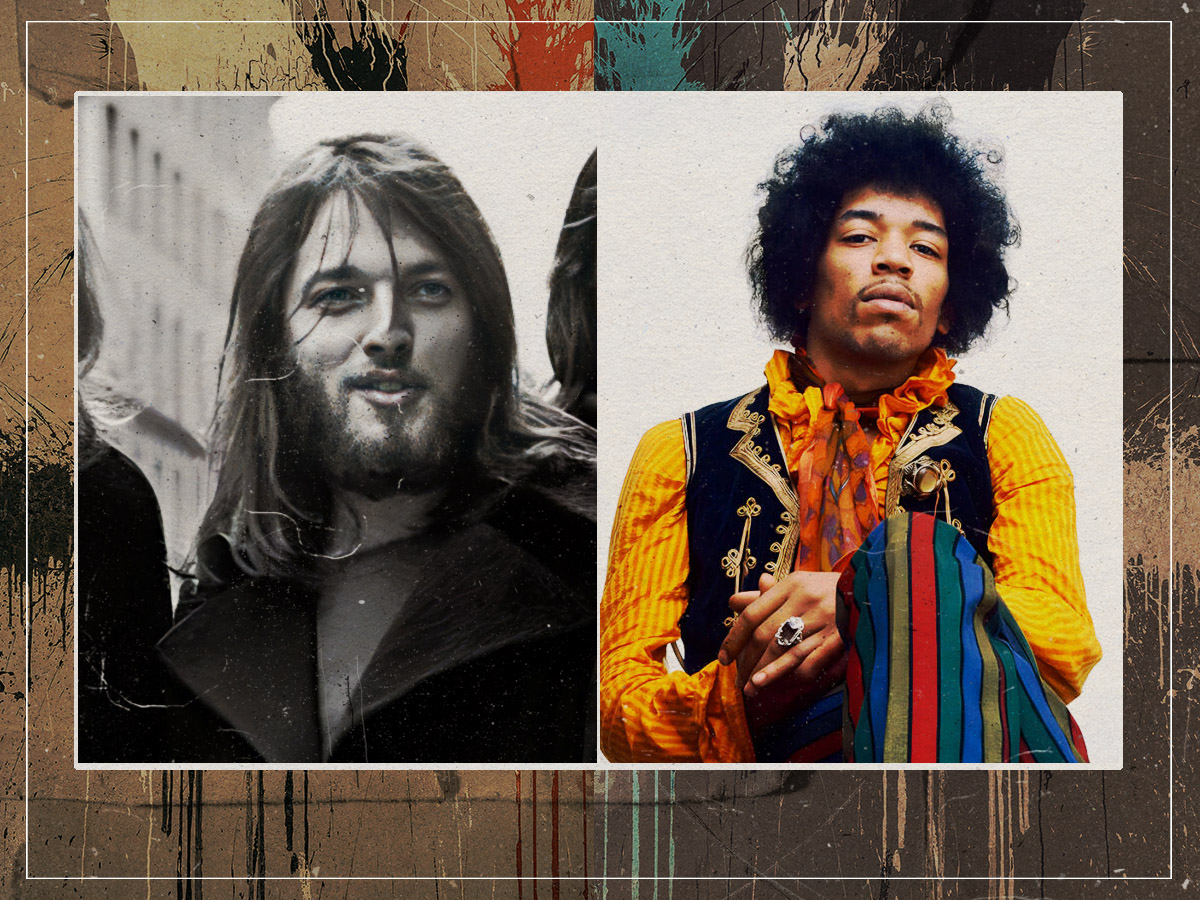
(Credits: Far Out / Alamy / Bent Rej)
Fri 5 September 2025 14:00, UK
Jimi Hendrix and David Gilmour may have come from entirely different worlds, with completely different outlooks on life, and with careers that only brushed together for the shortest of times. But they knew exactly who their one shared guitar hero was.
On the face of it, the pair never truly had much in common. Hendrix was obviously a solo powerhouse, for starters, who relied entirely on his mind-bending, warping abilities behind the six-string to command the audience’s full attention. By comparison, Gilmour had the backing of Pink Floyd for large swathes of his career – and although his talents were equally as prolific, his enthral was something far more covert and subtly enamouring.
In this sense, it may be difficult to discern many points of similarity between the pair, with such distinct artistic stylings on the guitar setting them apart. But there is one man who causes their universes to collide – and, of course, it could only be one Eric Clapton. He was the singular person who played the most influential role in the course of both guitarists’ lives, both explicitly and implicitly, but regardless, leading them both to greatness.
Dealing with Hendrix first in the most obvious capacity, it’s no exaggeration to claim that his career would have likely never lifted off the ground had it not been for the guiding hand Clapton and his cronies provided to the new kid, who’d just flown into the UK from the United States in 1966. Everyone knows the notorious story of the first night Hendrix got to London and got up on stage with Cream – Clapton almost conceded defeat when saying to his manager, “You never told me he was that fucking good,” while Hendrix quipped back, “I want to see if he is as good as he thinks I am.”
Despite the bravado, it was clear that the two men were instantly head over heels in love with each other in a guitarist’s world, especially since Hendrix had sought out the opportunity to perform with Clapton before blowing him out of the water. But quietly watching from the sidelines, in awe of his two heroes while still in the infancy of his own career, was Gilmour, who would later keep his sense of worship over both Hendrix and Clapton but simultaneously be considered one of their contemporaries, too.
In a lot of ways, this potent spell of influence was inevitable, given the crossroads at which the intersections of rock guitarists met. It was only a few short years after Hendrix had ripped up the stage with Cream that Gilmour took the step towards joining Pink Floyd – and at the time, anyone who was anyone revered the two as the ultimate gods of the scene. However, when people say that Gilmour is almost like the stepping stone towards Hendrix in the lineage of guitar greatness, they don’t mean it in the sense that their styles are at all identical.
Instead, we can view each figure as a pivotal part of the evolution of rock guitar playing, even if this doesn’t fall entirely chronologically. If Gilmour’s alluring subtlety is the first stage, Hendrix’s all-out ferociousness is the second, both leading to the pinnacle of Clapton, who embodies the light and shade of these spirits in opposing ways. Ultimately, this notion is what made him the greatest guitarist in the eyes of his sonic proteges, but this subsequently transcends to the rest of the world.
Related Topics

